GSCQ Editorial Board

William S. Bradley, Ph.D., AIA
Stantec Architecture
Bill Bradley Ph.D., AIA is a licensed architect, LEED accredited professional, and A4LE accredited learning environments planner. He lives and works in Charlottesville, Virginia where he is an associate at Stantec Architecture. For the last 30 years, Bill has been exploring opportunities at the intersection of education and design. He started his career teaching and doing research at the University of Virginia’s Curry School of Education, where he played a role in shaping the direction of the Thomas Jefferson Center for Educational Design. From there, he transitioned into private practice as an architect and has worked with school districts around the country to envision ways to leverage architecture as a more effective medium for enhancing teaching and learning. Bill is a member of the American Institute of Architects’ Committee on Architecture for Education and is the Chair-elect of the Association for Learning Environments.

Jill Buck, M.S. Ed.
Go Green Initiative

Jaimie P. Cloud
The Cloud Institute for Sustainability Education

Laura Cole, Ph.D.
University of Missouri at Columbia
Laura Cole, Ph.D. is an Assistant Professor of Architectural Studies at the University of Missouri at Columbia where she teaches undergraduate studios, design business practices, and sustainable design. Before completing her Ph.D. at the University of Michigan, Laura worked as a professional interior designer for the architectural firm Perkins+Will (P+W). As a project designer and associate in the P+W Chicago office, she worked on numerous LEED commercial interiors projects. Her current research focuses on the social dimensions of green buildings, particularly on how sustainable design can be environmentally educational for the public. She examines buildings designed as “teaching tools” for environmental sustainability, asking how such buildings can be stages for formal and informal STEM education.
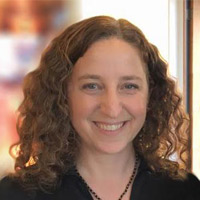
Sharon Danks
Green Schoolyards America

Anisa Heming, LEED AP
Center for Green Schools at USGBC
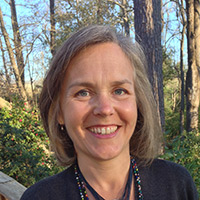
Lisa A. W. Kensler, Ed.D.
Auburn University
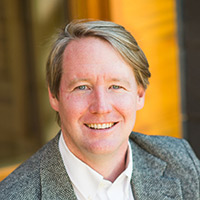
Wyck Knox, AIA, LEED BD+C
VMDO Architects
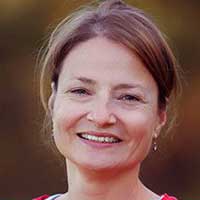
Elisabeth Krautscheid
Collaborative for High Performance Schools (CHPS)
Elisabeth Krautscheid is Managing Director for CHPS and a Certified Energy Manager with more than 25 years of professional experience in environmental policy implementation, program management, and community activism. Prior to joining CHPS, Elisabeth directed the Green Schools Initiative (MA-CHPS program) for the Massachusetts Clean Energy Center. During her tenure, she oversaw completion of the 2009 update to the MA-CHPS criteria and the Post-Occupancy Study of the first round of schools built under MA-CHPS. Elisabeth specializes in environmental justice and healthy communities, skills she honed while working with the Massachusetts Department of Community Development, where she spearheaded adoption of a green building policy for housing development and was part of an inter-agency team focused on sustainable development. She holds a B.A. in English Literature from Michigan State University and an M.A. in Energy & Environmental Studies from Boston University.

Gerald A. Lieberman, Ph.D.
State Educaion and Environment Roundtable
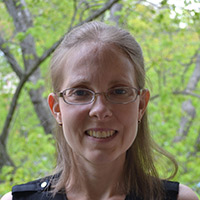
Cynthia Merse
Green Schools National Network
Cynthia (Cyndy) Merse is is Director of Communications for Green Schools National Network (GSNN), managing the organization’s publications and editorial content. She is also owner of MerseCreative, a freelance writing and consulting business based in Knoxville, TN. Prior to joining GSNN and starting her own business, Cyndy worked for the U.S. Environmental Protection Agency where she gained experience in research, data analysis, communications and outreach, and program development. She worked on several high-level, national scale projects that concerned children’s environmental health and healthy school environments including the Schools Chemical Cleanout Campaign, a voluntary program that promoted responsible chemical management in K-12 schools, and developing a set of guidelines and a model program for state school environmental health programs. Cyndy obtained her Bachelors Degree in Chemical Engineering from Vanderbilt University and a Masters Degree in Environmental Policy and Planning from Ohio University.
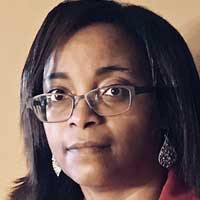
Angelia Reid-Griffin
University of North Carolina Wilmington
Angelia Reid-Griffin is an Associate Professor of Science Education at the University of North Carolina Wilmington (UNC – Wilmington). Angelia’s research involves providing youth opportunities to engage in authentic learning experiences through mentorship. She currently serves as the coordinator and instructor of an afterschool STEM program at UNC – Wilmington, Junior Seahawk Academy. Through this program Angelia uses interdisciplinary curriculum to teach youth to become good stewards of their environment by emphasizing sustainability and recycling/upcycling materials for service-learning. Her research also involves best practices in using technologies in teaching STEM, recruiting minorities in STEM, and teacher retention.

Bill Sterrett
University of North Carolina Wilmington
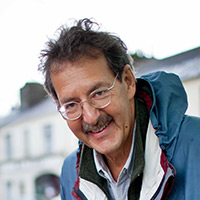
David Sobel, M.Ed.
David Sobel is a Professor Emeritus in the Education Department at Antioch University New England in Keene, New Hampshire. He consults and speaks widely on child development, place-based education, and nature-based early childhood education. He has authored eight books and more than 70 articles focused on children and nature for educators, parents, environmentalists, and school administrators. In 2007, he was identified as one of the Daring Dozen educators in the United States by Edutopia magazine. He is a member of the Children and Nature Network Advisory Board and the Nature-based Learning Research Group.
Stay up to date with Green Schools National Network
Latest news, updates, and GreenNotes
